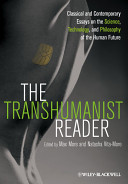Hyperlinks as Conversation
Hyperlinks are fine-grained, bidirectional, and extrinsic. Frequently, an argument is not with a document or chapter as a whole. It is with a particular point that someone made at a particular place in the text. For example, someone refers to the fourth law of thermodynamics, and someone else writes a criticism saying there is no fourth law of thermodynamics, linking it to the original. The fine-grained property allows the link to designate the particular piece of text with which one is taking issue. Bidirectionality enables readers of the original document to find the criticism, enabling them to exercise fine-grained skepticism, and to constantly ask themselves, “What is the best argument against the thing I am reading right now?” and then, “What is the best argument against that, in turn?” Links provided by other hypertext systems generally have been only in the forward direction, enabling a reader to find those documents referenced by a given document. However, to find criticism, the reader must find the documents that refer to the document they are reading.
Extrinsic linking is the ability to link into a document without editing it. Several other systems support the creation of links that are fine-grained at the targeted end, but these others do so only by modifying both source and target documents.3 Critics normally will not have the ability to modify the documents they are criticizing. They could spin off their own version into which they attach these links, but then other readers still cannot find these criticisms from the original documents.
Notes:
From Mark S. Miller's "The Open Society and Its Media"
Folksonomies: new media world wide web hyperlink
Taxonomies:
/hobbies and interests/reading (0.571240)
/science/physics/thermodynamics (0.529297)
/health and fitness/disease/asthma (0.395100)
Keywords:
Mark S. Miller (0.982646 (neutral:0.000000)), best argument (0.878710 (positive:0.380331)), target documents.3 Critics (0.824190 (neutral:0.000000)), fine-grained skepticism (0.809480 (negative:-0.403079)), fine-grained property (0.803141 (positive:0.374290)), Extrinsic linking (0.654573 (neutral:0.000000)), Open Society (0.629228 (positive:0.237758)), particular point (0.572966 (positive:0.595755)), particular place (0.572016 (positive:0.595755)), forward direction (0.570031 (neutral:0.000000)), particular piece (0.558037 (positive:0.374290)), hypertext systems (0.553114 (neutral:0.000000)), targeted end (0.547161 (positive:0.543723)), original document (0.533023 (neutral:0.000000)), original documents (0.511152 (negative:-0.457544)), criticism (0.488206 (negative:-0.310158)), links (0.403117 (positive:0.254611)), Hyperlinks (0.398213 (positive:0.237131)), thermodynamics (0.379953 (negative:-0.313267)), ability (0.345209 (neutral:0.000000)), readers (0.333091 (negative:-0.457544)), reader (0.333002 (neutral:0.000000)), law (0.324698 (negative:-0.313267)), Conversation (0.285044 (neutral:0.000000)), criticisms (0.281057 (negative:-0.457544)), Media (0.277385 (positive:0.237758)), chapter (0.274560 (negative:-0.273317)), thing (0.271845 (positive:0.423915)), example (0.269902 (neutral:0.000000)), turn (0.268577 (neutral:0.000000))
Entities:
Mark S. Miller:Person (0.965121 (neutral:0.000000))
Concepts:
Link (0.905462): dbpedia
The Reader (0.901454): dbpedia | freebase | yago
Criticism (0.873621): dbpedia | freebase
Literary criticism (0.850906): dbpedia | freebase
Hypertext (0.785873): dbpedia | freebase
Philosophical terminology (0.705443): dbpedia
Reader (0.695526): dbpedia
Kate Winslet (0.686558): opencyc | freebase | dbpedia | yago | musicBrainz





